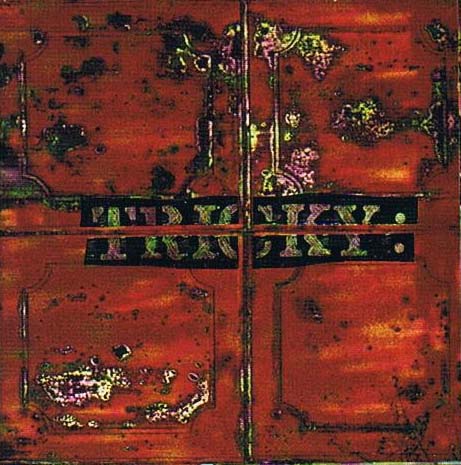Music – Maxinquaye (Tricky)
February 24th, 2013
I normally don’t write about music. It scares me a bit because I don’t know much about music theory and lack the cultural capital and general know-how that comes with being a hardcore music buff. Still, given that I find myself more and more invested in what I listen to, but have been struggling to find writing that clearly explains it to me, I’d like to give it a try myself. I only have two, maybe three, posts worth of ideas, so this’ll only be a short excursion. I’d like to start with an album that I’ve been listening to for about 3 weeks, Maxinquaye by Tricky (1995). You can hear the whole album here or just listen to several select songs below:
Ponderosa
Black Steel
Aftermath
Maxinquaye has an elusive quality which is created through harmonic dissonance, contrasting styles, and a subversive approach to singing and songwriting. Examples include:
- The blend of different genres, including hip-hop, rock, soul, and electronica.
- Tricky’s role as a backing singer for more than half of the record, despite it being “his” album.
- Tricky’s assortment of singing styles (sing-speak, rapping, whispering, and various inhaling, exhaling, moans, and groans).
- The way a singer of one sex sings lyrics written from the viewpoint of the other (eg. Black Steel). This gives the music an ambiguous sexual identity.
- The vocal relationship between Tricky and Martina Topley-Bird.
In regards to the former most point, sometimes:
- Tricky speaks the lyrics before Martina sings them (Strugglin’), which sounds like Tricky is the voice in the back of Martina’s head, feeding her the message.
- Tricky speaks as Martina sings, producing an out-of-time backing vocal (Aftermath, Abbaon Fat Tracks).
- Tricky whispers and his vocals are, seemingly, cut up and looped, creating a bedrock of background conversation (Feed Me).
- Tricky is absent altogether (Overcome).
- Tricky moans and exhales (Ponderosa).
- Tricky sings the verses, while Martina sings the chorus (Suffocated Love).
The changing relationship between the two singers, through Tricky, conjures up a variety of associations. Do they know what the other is going to say? Are they conversing or just talking over each other? How are power roles expressed through the vocals?
Ponderosa combines several of these points together. In this song, Tricky is the backing vocalist. He backs the last few words of each line, sometimes sitting out, other times taking the lead. At the start of the song, he whispers. After the first verse, the song pauses while he exhales and moans, before the chorus kicks in. Near the end of the song, he repeats key words that come later in the track as he waits for Martina to catch up. The result is a dynamic layer of vocals that weaves in and out of the main thread, lifting the peaks (“different levels of the devil’s company”) and prompting the listener to mentally rewind and fast forward the lyrical content of the song.
Similar to Ponderosa’s vocals, Black Steel’s second half sees the singing become detached from the music and weave in and out of the time of the instrumentals, before eventually finding its focus.
Additional Reading




 Game Design Companion: A Critical Analysis of Wario Land 4 - $7.99
Game Design Companion: A Critical Analysis of Wario Land 4 - $7.99 Level Design: Processes and Experiences
Level Design: Processes and Experiences Speed Boost: The Hidden Secrets Behind Arcade Racing Design - $5.99
Speed Boost: The Hidden Secrets Behind Arcade Racing Design - $5.99 Adventures in Games Analysis: Volume I - $5.99
Adventures in Games Analysis: Volume I - $5.99







